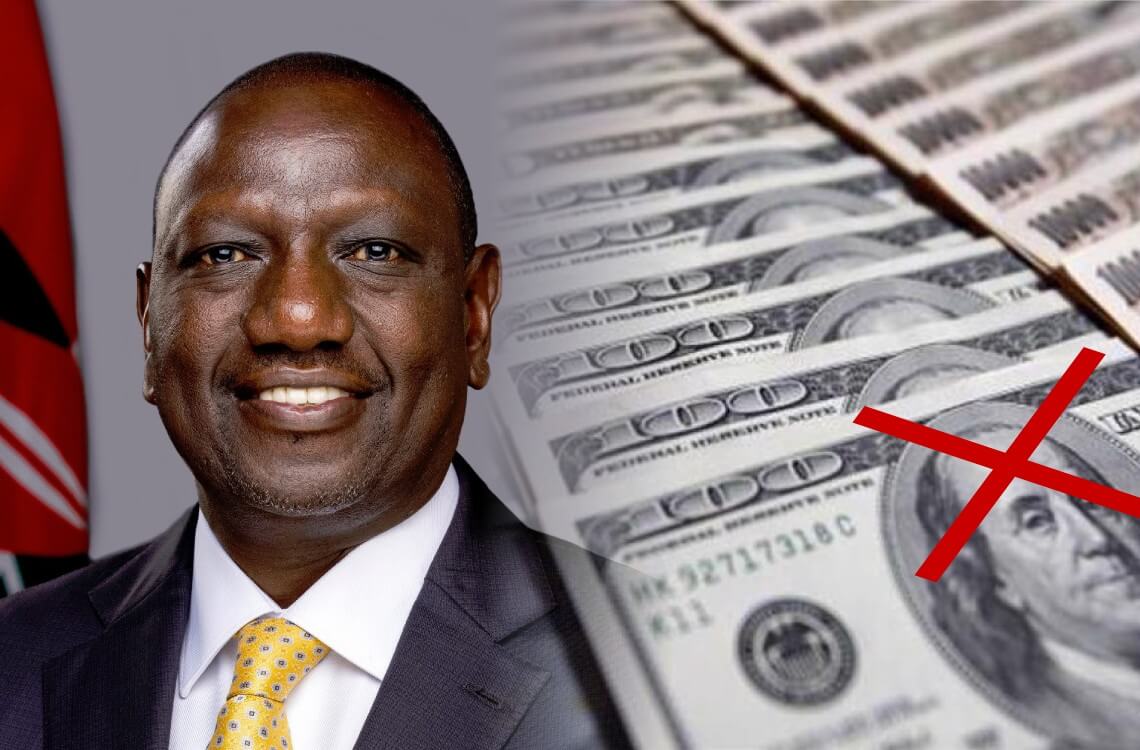Making a compelling case to free Africa’s economic prospects from the influence of the U.S. dollar, Kenya’s President William Ruto recently pressed the continent to embrace a new financial future.
Advocating for a pivot in the African trading system, Ruto emphasized the need for continental economic self-reliance.
Kenya takes the lead in advocating for Pan-African economic autonomy
Trade practices within Africa have long been subject to the supremacy of the U.S. dollar. Whether it’s Kenyan merchants doing business with Djibouti or other intra-continental transactions, the necessity for the U.S. currency often becomes an unavoidable obstacle.
However, Kenya’s leadership envisions a future where the continent’s business is settled in local currencies through the African Export-Import Bank (AfriEximBank).
Arguing that the presence of the U.S. dollar in the trade equation between two African countries doesn’t add up, Ruto made a strong case for the Pan-African Payment and Settlement System (PAPSS).
Championed by AfriEximBank, PAPSS provides a platform where intra-African trade payments could be made and settled in local currencies, simplifying the trade process.
Kenya isn’t advocating against the U.S. dollar, but rather, urging a more practical approach to trade. By utilizing local currencies for transactions between African countries, the continent can foster free trade, reducing unnecessary complexities.
It’s not about vilifying the dollar, but about optimizing trade processes within Africa.
The consequences of dollar dominance on African economies
Africa’s relationship with the U.S. dollar hasn’t always been smooth. Macro-economic disruptions and geopolitical shifts have repeatedly eroded the value of many African currencies, leading to steep depreciation and inflation.
These currency fluctuations often hit hardest in countries that are net importers of fuel and food.
While capital control measures may provide short-term relief to central banks under pressure, these strategies often bring about severe economic drawbacks.
They can result in scarcity of dollars for importers, disrupting access to essential goods and eventually fostering an unhealthy parallel foreign exchange market.
The inability to repatriate capital is a significant deterrent for investors. This fear of capital control measures curtails the long-term growth potential of economies by creating a shortage of available investment capital.
Despite these challenges, the strengthening dollar does present some opportunities for Africa. It can make African exports more competitive on the global market and can make inward investments into the continent cheaper for U.S. investors.
However, foreign investors remain wary about potential local currency depreciation.
Kenya is preparing to take on this issue head-on. The nation plans to introduce a repo market in 2023, backed by a local Central Securities Depository. This move should improve liquidity in bonds and reduce the cost of issuing local currency debt.
It’s important for African nations to consider regional or Pan-Africa approaches to strengthen their financial infrastructures. An example is the West African Economic Monetary Union (WAEMU), which facilitates economic integration among eight West African countries.
The WAEMU nations share a common currency, the CFA Franc, managed by a single central bank.
Kenya’s call to ditch the U.S. dollar echoes across a continent that has long been under the influence of the American currency. It’s not just about shifting from one currency to another.
It’s about gaining economic freedom, asserting autonomy, and choosing a path that is beneficial for Africa’s prosperity in the long run.





